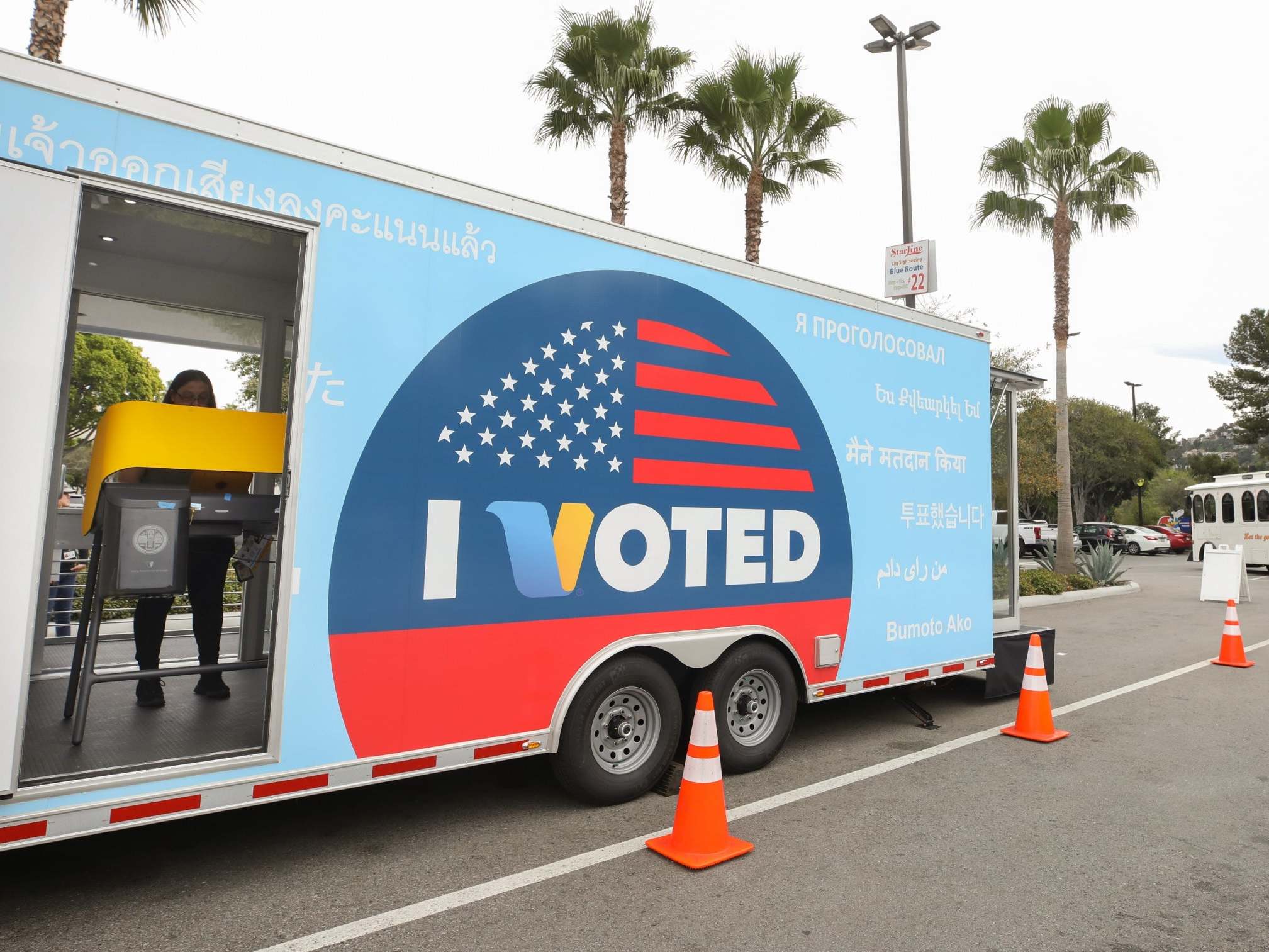Super Tuesday: Everything you need to know in five charts
From how much Mike Bloomberg is spending on ads to Joe Biden's polling rollercoaster

Super Tuesday is the biggest voting day in the primary election process. This year's Super Tuesday especially so, as the nation's two most populous states - California and Texas - will vote on the same day. There are 1,617 delegates up for grabs - 34 percent of all available delegates.
The contest on Super Tuesday is the closest thing the United States has to a federal primary election. The states that choose to primary on Super Tuesday do so because they want to have an early influence on who the eventual presidential nominee is, and the four early primary states have agreements with the parties to maintain their early spots. The narratives built on Super Tuesday performances can make or break campaigns.
In addition to the winner's narrative, the sheer number of delegates at stake is why many campaigns are hanging their hats on the results of Super Tuesday. Former New York City Mayor Mike Bloomberg skipped the first four states of the primary race - Iowa, New Hampshire, Nevada and South Carolina - and instead chose to focus solely on winning big on Super Tuesday. Mr Bloomberg hopes that by inundating the Super Tuesday states with ads, he'll pick up victories based on name recognition alone.
Mr Bloomberg's ad spending eclipsed his rivals in January, spending $220.6 million to get his name and face out to the masses. By comparison, entrepreneur and former rival billionaire candidate Tom Steyer - who dropped out of the race last Saturday - spent $52.9 million and Senator Bernie Sanders spent $26.5 million.
Frontloading HQ shows Senator Bernie Sanders entering Super Tuesday with a lead over his Democratic opponents in pledged delegates and poised to make substantial gains in California, Texas, Utah and Colorado. Following former Vice President Joe Biden's South Carolina primary win on Saturday, Mr Biden will enter the race in second place. His victory there has also improved his polling numbers in states like North Carolina, Texas and Virginia, where he is now in close competition with Mr Sanders.
Former South Bend, Indiana mayor Pete Buttigieg would have been a distant third, but dropped out of the race on Sunday.
Other than Mr Sanders, the candidates with the most to gain from Super Tuesday are Mr Biden and Mr Bloomberg. Mr Biden has the chance to pull ahead of Mr Sanders if he performs particularly well or if Mr Sanders performs particularly poorly. With Mr Buttigieg out of the race, Mr Biden may get a bump to his numbers from migrating supporters. If Mr Bloomberg does well and Mr Biden underperforms - which does not appear likely to happen - it would become a race for second place as the candidates eat into each other's likely voter pools.
However, as this chart from Frontloading HQ shows, the race might look a lot different today if superdelegates were being counted on the first ballot. Thus far, Mr Biden is far ahead of Mr Sanders in the number of superdelegates who've endorsed him - 83 to Mr Sanders' 23. Due to a rule change implemented after the 2016 primary, superdelegates now only get to vote on the party's second ballot. This happens at the convention in July and only occurs if no candidate wins the 1,991 pledged delegates needed to secure the nomination.
It's important to note the difference going into Super Tuesday because the prevailing narrative might be significantly different without the rule change. If superdelegates were allowed to participate in the first round of elections, Mr Biden's campaign could claim it had the delegate lead despite only winning 15 pledged delegates. Mr Sanders, who has won more pledged delegate support from the rank-and-file Democratic voters, would be cast in second place. The chart also provides some insight into what superdelegates may do if no candidate is able to win the 1,991 delegates needed to clinch the nomination by the time of the convention.
Despite recent drop-outs, the race for the nomination is still somewhat crowded, and there are several Super Tuesday states where two or three candidates are neck and neck, which means a greater delegate split. Since a candidate needs to amass 1,991 pledged delegates to win the nomination, no one is going to run away with the election after Super Tuesday. As the Frontloading HQ chart above suggests, Super Tuesday is by far the most significant day of the primary election for picking up delegates. If the race remains neck and neck coming out of Super Tuesday, it's totally feasible that - barring any scandals or other unforeseen events - it will remain that way until the convention.
As RealClearPolitics' poll aggregates attest, the prevailing narrative heading into Super Tuesday for the candidates is that Mr Sanders is poised to win substantially in a few states, particularly California, Utah, Colorado and his home state Vermont. He is also competitive in Texas. Mr Biden, who was once riding high as the presumed front-runner until his popularity began to tank at the beginning of February, has seen a resurgence following his South Carolina victory and is polling well going into the Super Tuesday. As Mr Sanders popularity has been growing, Senator Elizabeth Warren's numbers have been falling. As of Monday, Mr Sanders is polling better than her in her home state of Massachusetts in every district.
Mr Bloomberg, who managed to quickly climb in the polls thanks to a deluge of campaign advertisements leading up to Super Tuesday, is currently sitting just above Ms Warren in overall polling popularity.
Subscribe to Independent Premium to bookmark this article
Want to bookmark your favourite articles and stories to read or reference later? Start your Independent Premium subscription today.

Join our commenting forum
Join thought-provoking conversations, follow other Independent readers and see their replies